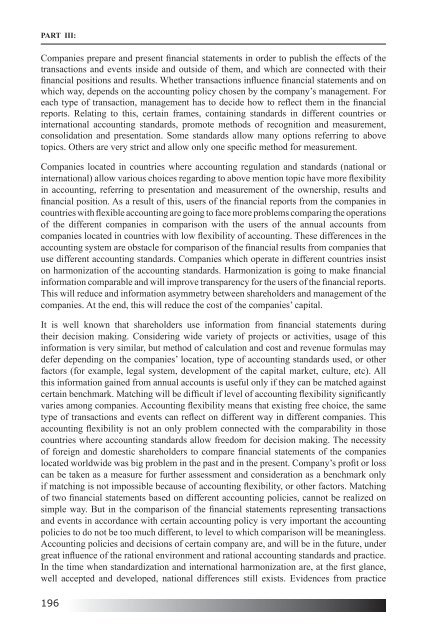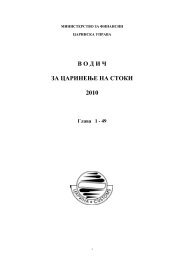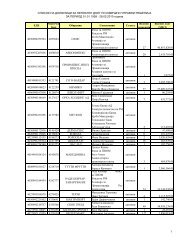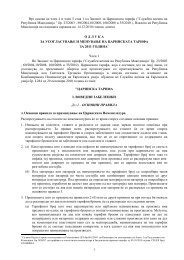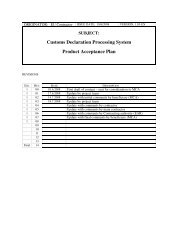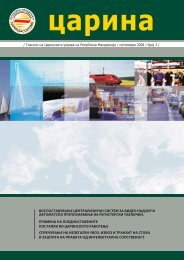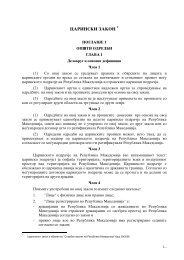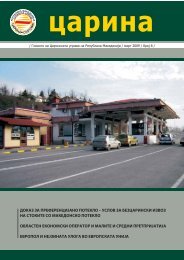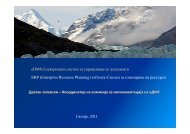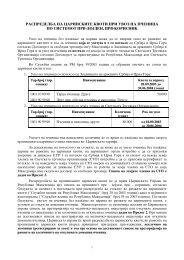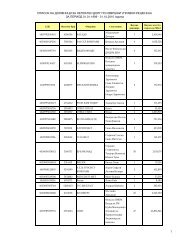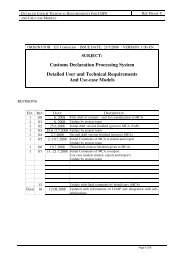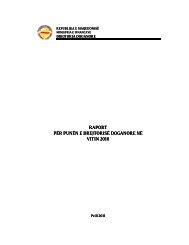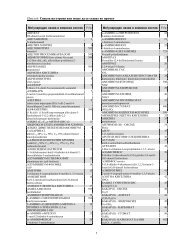REGIONAL COOPERATION AND ECONOMIC INTEGRATION
REGIONAL COOPERATION AND ECONOMIC INTEGRATION
REGIONAL COOPERATION AND ECONOMIC INTEGRATION
- No tags were found...
You also want an ePaper? Increase the reach of your titles
YUMPU automatically turns print PDFs into web optimized ePapers that Google loves.
PART III:<br />
Companies prepare and present financial statements in order to publish the effects of the<br />
transactions and events inside and outside of them, and which are connected with their<br />
financial positions and results. Whether transactions influence financial statements and on<br />
which way, depends on the accounting policy chosen by the company’s management. For<br />
each type of transaction, management has to decide how to reflect them in the financial<br />
reports. Relating to this, certain frames, containing standards in different countries or<br />
international accounting standards, promote methods of recognition and measurement,<br />
consolidation and presentation. Some standards allow many options referring to above<br />
topics. Others are very strict and allow only one specific method for measurement.<br />
Companies located in countries where accounting regulation and standards (national or<br />
international) allow various choices regarding to above mention topic have more flexibility<br />
in accounting, referring to presentation and measurement of the ownership, results and<br />
financial position. As a result of this, users of the financial reports from the companies in<br />
countries with flexible accounting are going to face more problems comparing the operations<br />
of the different companies in comparison with the users of the annual accounts from<br />
companies located in countries with low flexibility of accounting. These differences in the<br />
accounting system are obstacle for comparison of the financial results from companies that<br />
use different accounting standards. Companies which operate in different countries insist<br />
on harmonization of the accounting standards. Harmonization is going to make financial<br />
information comparable and will improve transparency for the users of the financial reports.<br />
This will reduce and information asymmetry between shareholders and management of the<br />
companies. At the end, this will reduce the cost of the companies’ capital.<br />
It is well known that shareholders use information from financial statements during<br />
their decision making. Considering wide variety of projects or activities, usage of this<br />
information is very similar, but method of calculation and cost and revenue formulas may<br />
defer depending on the companies’ location, type of accounting standards used, or other<br />
factors (for example, legal system, development of the capital market, culture, etc). All<br />
this information gained from annual accounts is useful only if they can be matched against<br />
certain benchmark. Matching will be difficult if level of accounting flexibility significantly<br />
varies among companies. Accounting flexibility means that existing free choice, the same<br />
type of transactions and events can reflect on different way in different companies. This<br />
accounting flexibility is not an only problem connected with the comparability in those<br />
countries where accounting standards allow freedom for decision making. The necessity<br />
of foreign and domestic shareholders to compare financial statements of the companies<br />
located worldwide was big problem in the past and in the present. Company’s profit or loss<br />
can be taken as a measure for further assessment and consideration as a benchmark only<br />
if matching is not impossible because of accounting flexibility, or other factors. Matching<br />
of two financial statements based on different accounting policies, cannot be realized on<br />
simple way. But in the comparison of the financial statements representing transactions<br />
and events in accordance with certain accounting policy is very important the accounting<br />
policies to do not be too much different, to level to which comparison will be meaningless.<br />
Accounting policies and decisions of certain company are, and will be in the future, under<br />
great influence of the rational environment and rational accounting standards and practice.<br />
In the time when standardization and international harmonization are, at the first glance,<br />
well accepted and developed, national differences still exists. Evidences from practice<br />
196


